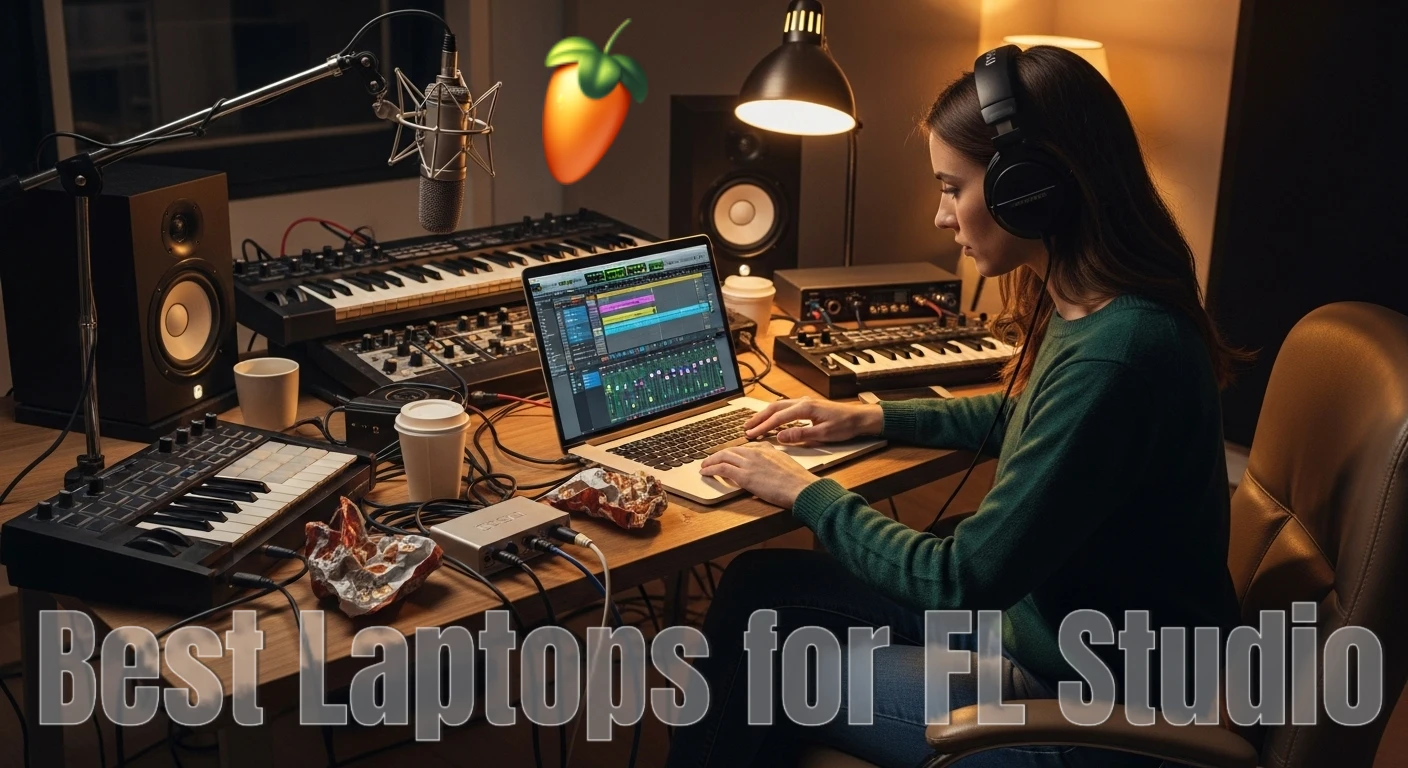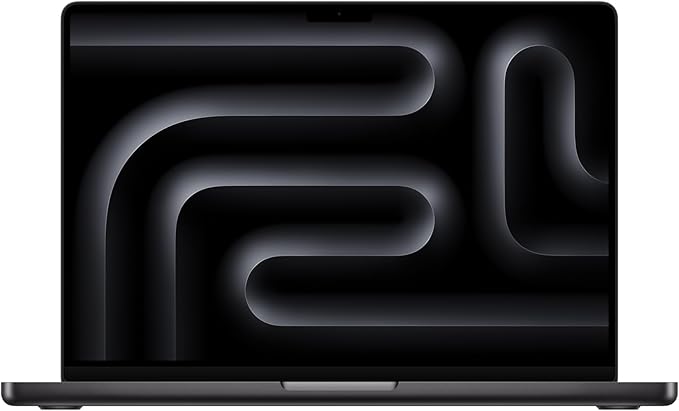If you’re a music producer, you already know that FL Studio is both powerful and demanding. The more plugins, virtual instruments, and effects you load, the more your laptop has to keep up. A weak CPU, slow storage, or low RAM can cause lag, audio dropouts, and endless frustration.
That’s why picking the right laptop is one of the smartest investments you can make for your creative workflow. In this guide, I’ll walk you through the best laptops for FL Studio in 2025, explain what makes each one great, and highlight their real-world pros and cons—no fluff.
Also Read: Best Laptops for DaVinci Resolve
Quick Buyer’s Guide: What to Look For
Before we dive into specific models, here are the key specs that matter most for FL Studio:
- Processor (CPU): Fast single-core speed is crucial for real-time playback. More cores help with heavy mixing and exporting.
- RAM: 16 GB is the minimum sweet spot. Go for 32 GB if you use orchestral libraries, Kontakt, or big sample packs.
- Storage: NVMe SSDs are best. 1 TB minimum if you keep your sample libraries local.
- Thermals & Noise: Quiet laptops are better if you record vocals or instruments near the machine.
- Ports: You’ll need USB-C or Thunderbolt for audio interfaces, plus at least one USB-A for MIDI gear.
- Battery Life: Handy for producers who work on the go.
Best Laptops for FL Studio in 2025
Here are the top laptops I recommend for producers—all tested and trusted by the music production community.
1. Apple MacBook Pro (M4 Series) — The “Set It and Forget It” Option
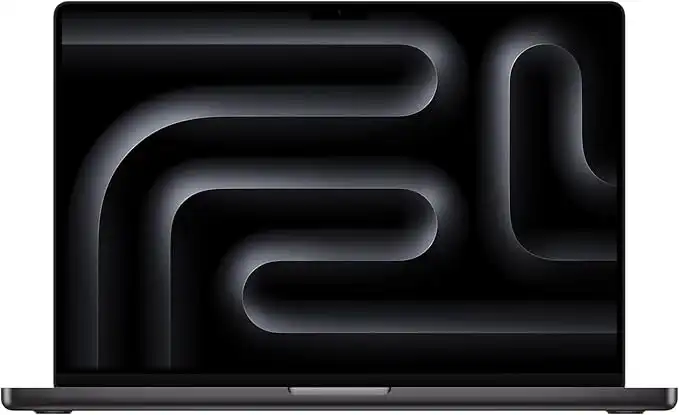
Why it’s great: Apple Silicon has changed the game for music producers. The M4 MacBook Pro runs huge FL projects effortlessly, with incredible battery life and whisper-quiet fans. Perfect for those who value stability.
Specs at a glance:
- CPU: Apple M4 Pro or Max
- RAM: 16–64 GB unified memory
- Storage: 512 GB–4 TB SSD
- Display: 14” or 16” Liquid Retina XDR
- Battery: Up to 18 hours
Pros:
- Fantastic performance for FL Studio and plugins
- Runs quietly, even under heavy loads
- Exceptional battery life
Cons:
- Expensive, especially high RAM configs
- Some plugins may need Rosetta or updates
Verdict: If you want a laptop that “just works” with FL Studio, this is the gold standard.
2. Razer Blade 16 (2025) — A Windows Powerhouse
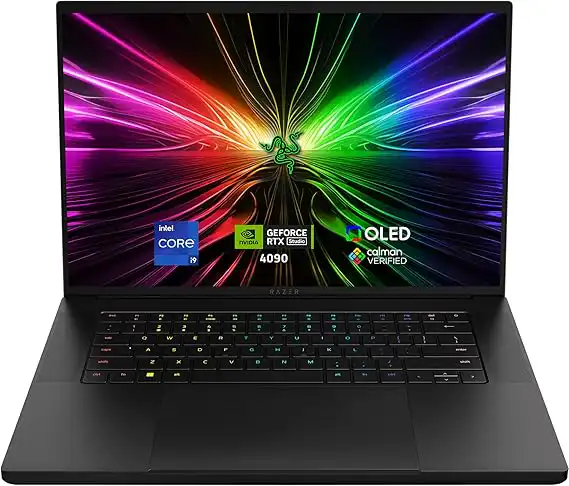
Why it’s great: The Blade 16 is basically a portable studio with desktop-class power. If you need to run massive projects or use GPU-heavy plugins, this laptop has you covered.
Specs at a glance:
- CPU: AMD Ryzen AI 9 HX / Intel 15th Gen
- RAM: 16–64 GB DDR5
- Storage: 1–2 TB NVMe SSD
- GPU: NVIDIA RTX 50-series options
- Display: 16” 240Hz / 4K
Pros:
- Extremely powerful hardware
- Great for multitasking and GPU-based work
- Premium build quality
Cons:
- Fans can get loud under load
- Battery life is short compared to MacBook
Verdict: The best choice for Windows users who want maximum performance, even if it means dealing with fan noise.
3. ASUS ROG Zephyrus G16 (2025) — Compact but Mighty
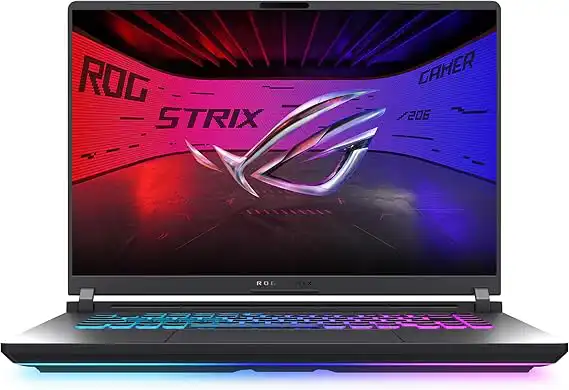
Why it’s great: This little machine punches way above its weight. It’s portable, stylish, and packs serious performance for producers on the move.
Specs at a glance:
- CPU: AMD Ryzen AI 9 (Zen 5)
- RAM: 16–32 GB
- Storage: 1 TB NVMe SSD
- Display: 14” OLED
- Weight: ~1.6 kg
Pros:
- Lightweight and portable
- Strong CPU performance for its size
- OLED screen is bright and detailed
Cons:
- Fans can ramp up during heavy projects
- Smaller keyboard/trackpad
Verdict: Ideal for traveling producers or DJs who need a portable yet powerful laptop.
4. Dell XPS 15 (2025) — A Balanced All-Rounder

Why it’s great: The XPS 15 is a favorite among creative professionals for its sleek design, strong performance, and gorgeous display.
Specs at a glance:
- CPU: Intel Core i7/i9 H-series
- RAM: 16–64 GB
- Storage: 512 GB–2 TB SSD
- Display: 15.6” OLED/IPS options
- Weight: ~1.8–2.0 kg
Pros:
- Professional design and premium build
- Excellent display for visual clarity
- Configurable to match your needs
Cons:
- Not as powerful as gaming laptops for huge projects
- Price climbs fast with upgrades
Verdict: A stylish, reliable Windows laptop that balances performance and portability.
Comparison Table
| Laptop | CPU | RAM | Storage | Display | Weight | Best For |
|---|---|---|---|---|---|---|
| MacBook Pro (M4) | M4 Pro/Max | 16–64 GB | 512 GB–4 TB | 14”/16” Retina | 1.6–2.1 kg | Quiet, reliable, long battery |
| Razer Blade 16 | Ryzen AI 9 / Intel 15th Gen | 16–64 GB | 1–2 TB | 16” 240Hz / 4K | ~2.2 kg | Power users, Windows producers |
| ASUS Zephyrus G16 | Ryzen AI 9 | 16–32 GB | 1 TB | 14” OLED | ~1.6 kg | Portable, mobile producers |
| Dell XPS 15 | Intel i7/i9 H-series | 16–64 GB | 512 GB–2 TB | 15.6” OLED/IPS | ~1.8–2.0 kg | Balanced, pro users |
FAQs: Laptops for FL Studio
There isn’t a single “perfect” laptop because it depends on your workflow. If you want quiet performance and long battery life, a MacBook Pro is hard to beat. For raw Windows power, machines like the Razer Blade or ASUS Zephyrus are excellent choices.
Aim for a modern multi-core processor, at least 16 GB of RAM, and a fast NVMe SSD. A good display and reliable ports for your audio interface are also important.
For most producers, 16 GB is enough to run smooth sessions. But if you use big sample libraries or lots of heavy plugins, upgrading to 32 GB will give you more breathing room.
Final Thoughts
There’s no one-size-fits-all “best laptop” for FL Studio. It depends on your workflow:
- MacBook Pro (M4): Best for quiet, reliable, all-day production.
- Razer Blade 16: Best for raw Windows power and multitasking.
- ASUS Zephyrus G16: Best portable powerhouse.
- Dell XPS 15: Best stylish all-rounder.
Whichever you choose, make sure it fits your style of producing—because nothing kills creativity faster than a laggy laptop.
